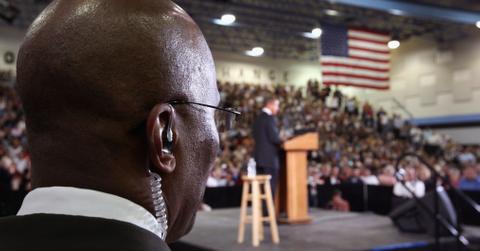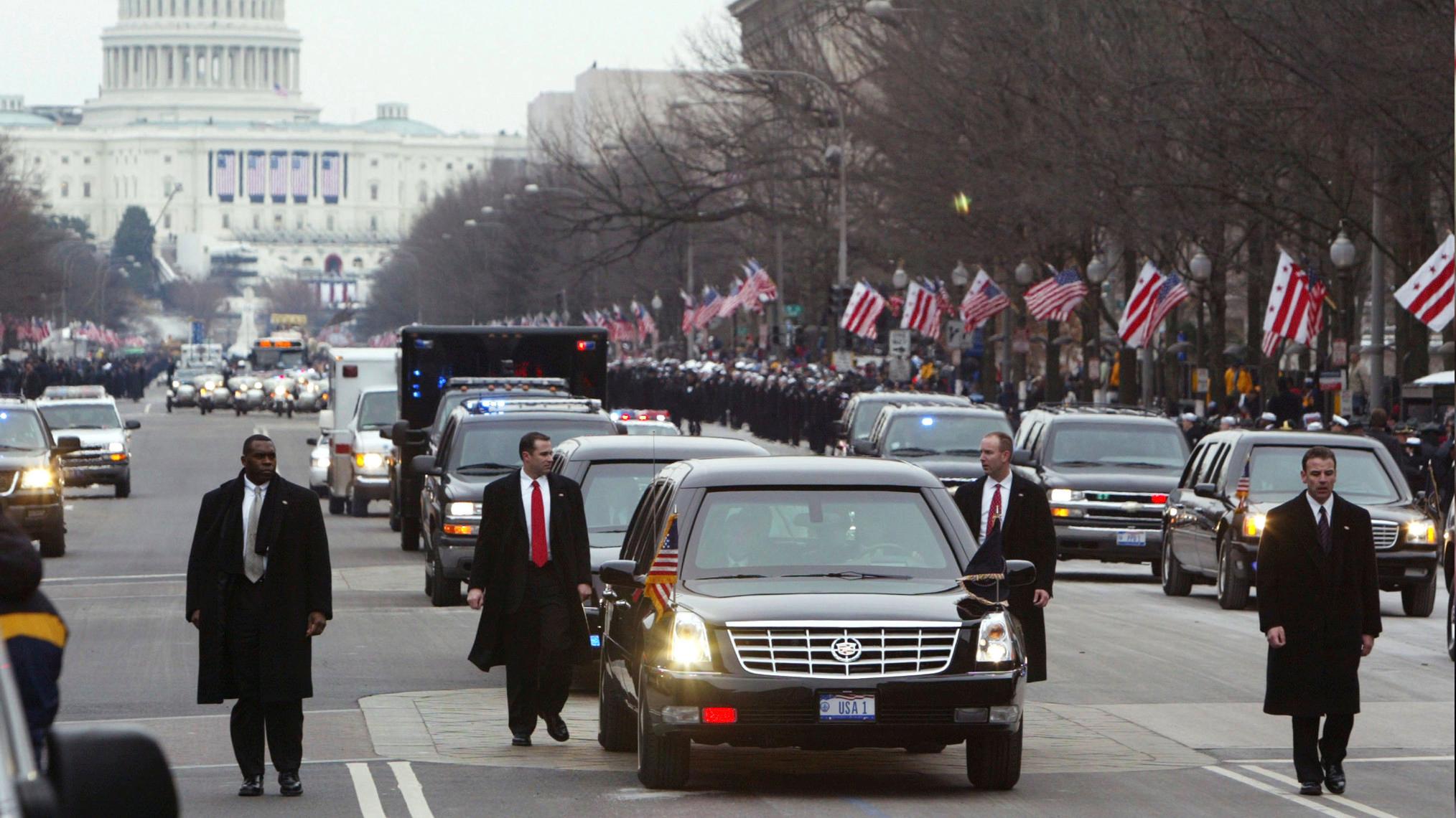How Much Do U.S. Secret Service Agents Make Per Year?
How much does a Secret Service officer or agent make? Here are some details about the federal law enforcement agency, its job offerings, and its history.
April 13 2022, Updated 5:57 a.m. ET

Originally, the Secret Service was founded to root out counterfeit money. The agency is still committed to protecting the integrity of the U.S. dollar as part of its responsibilities. However, let’s get down to brass tacks here. How much does a Secret Service agent make per year?
The Secret Service was on full display during Joe Biden's inauguration. Many people wonder how much the agents make per year. Here’s intel on the Secret Service’s history, its requirements, and the salaries it offers.
A Secret Service agent’s salary
According to the agency’s website, a special agent in the Secret Service’s Office of Investigations starts at a salary of $49,016 with a promotion potential up to $144,676. Meanwhile, an officer in the Secret Service’s Uniformed Division earns a salary of $63,970 to $110,051 per year, according to a job listing.
Average salaries for Secret Service special agents in the U.S. range from $19,348 to $511,652, with a median salary of $93,717, according to Comparably. Additionally, the middle 57 percent of special agents make between $93,727 and $232,721, and the top 86 percent make close to $511,652.
The Secret Service website describes the values that the agency holds dear. “The workplace culture within the United States Secret Service exemplifies five core values: Courage, Loyalty, Duty, Honesty, and Justice. These values, and the Secret Service adage ‘Worthy of Trust and Confidence,’ resonate with every American who has sworn to uphold these principles.”

What are the requirements for the Secret Service?
To become an officer with the Secret Service’s Uniformed Division, applicants have to meet the conditions of employment listed on the USAJOBS.gov website. For starters, applicants must be a U.S. citizen between 20 and 37 years old and hold a current valid U.S. driver’s license.
Also, applicants must have uncorrected visual acuity of at least 20/100 or corrected visual acuity of at least 20/20 in each eye, and no more than 25 decibels of hearing loss. Applicants must submit to drug tests and disclose any drug use. They must also have firearm proficiency, complete 12 weeks of intensive training at the Federal Law Enforcement Training Center, and undergo 14 weeks of specialized training.
Additionally, applicants must certify that they have registered with the Selective Service System or that they are exempt from doing so.
Why the Secret Service is part of the Treasury
The U.S. Secret Service isn't part of the Department of the Treasury anymore, but it was when it was founded in 1865. According to CNN, the Secret Service was established to combat the then-rampant counterfeiting. Forged currency made up an estimated one-third to one-half of all money in circulation at the time.
In 1867, the agency expanded to investigate fraud, mail theft, bootlegging, and smuggling, and in 1894, the Secret Service discovered an assassination plot against Grover Cleveland while investigating a gambling ring. The agency provided part-time protection for the president. In 1898, the agency assigned a detail to the White House to protect president William McKinley during the Spanish-American War.
In 1901, McKinley was assassinated and Congress requested full-time Secret Service protection for presidents. The following year, during president Theodore Roosevelt’s time in office, the agency established 24-hour protection for commanders-in-chief.
It wasn’t until 2003 that the Secret Service was transferred to the Department of Homeland Security, along with 21 other government departments, including the Coast Guard, the Customs Service, and the Bureau of Alcohol, Tobacco and Firearms.
